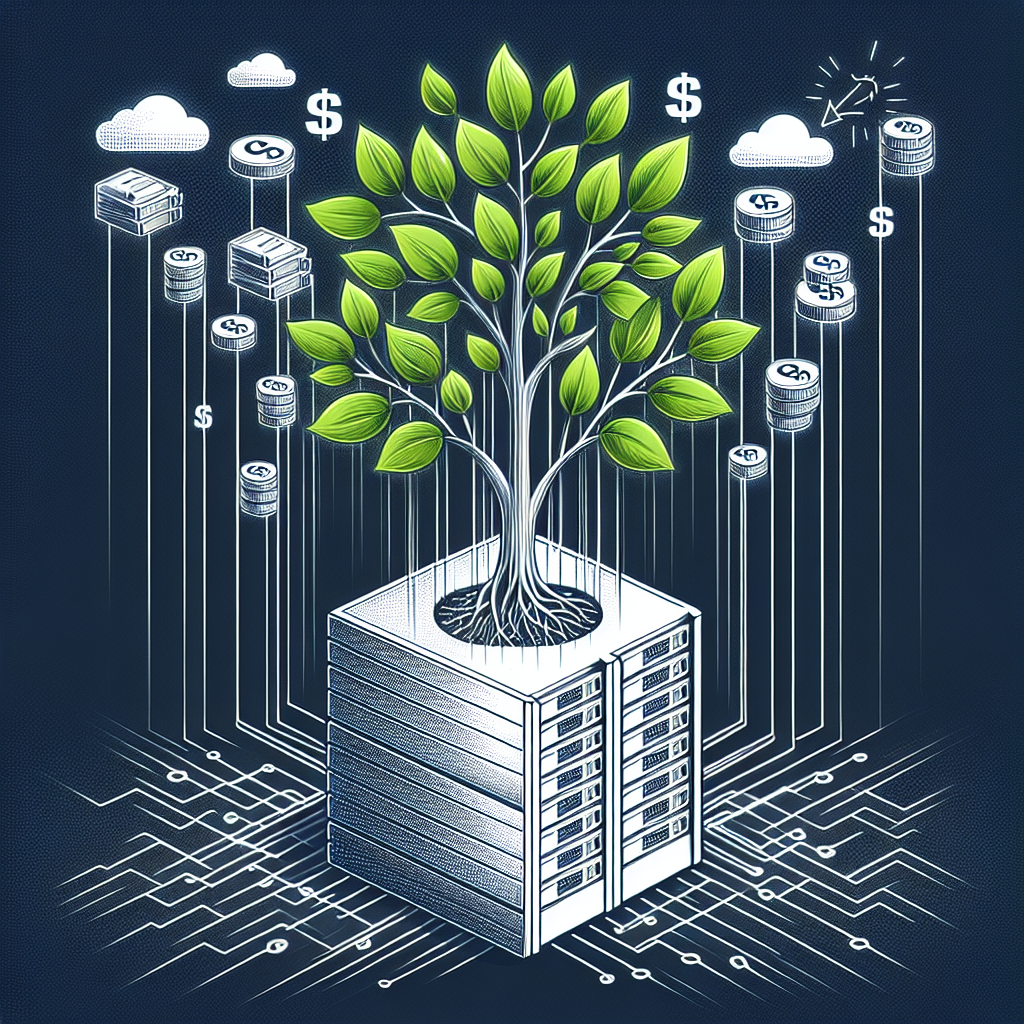Your cart is currently empty!
Tag: LongTerm

Building Resilience: Why Business Continuity is Key to Long-Term Success
In today’s fast-paced and ever-changing business environment, building resilience is essential for long-term success. One of the key components of resilience is having a robust business continuity plan in place. Business continuity planning involves identifying potential risks and developing strategies to ensure that operations can continue in the event of a disruption.There are many reasons why business continuity is key to long-term success. First and foremost, having a solid business continuity plan in place can help mitigate the impact of unforeseen events such as natural disasters, cyber-attacks, or supply chain disruptions. By anticipating potential risks and having a plan in place to address them, businesses can minimize downtime and quickly recover from disruptions, ultimately saving time and money.
Furthermore, having a business continuity plan can help build trust and confidence among customers, suppliers, and other stakeholders. By demonstrating that a business is prepared for potential disruptions, it can instill a sense of trust and reliability in its operations. This can be especially important for businesses in industries where downtime can have severe consequences, such as healthcare, finance, or transportation.
In addition, having a business continuity plan can also help businesses adapt to changing market conditions and emerging threats. By regularly reviewing and updating their plans, businesses can stay ahead of potential risks and ensure that they are prepared for whatever challenges may come their way. This adaptability is crucial for long-term success in today’s rapidly evolving business landscape.
Ultimately, building resilience through effective business continuity planning is essential for long-term success. By identifying potential risks, developing strategies to address them, and regularly reviewing and updating their plans, businesses can ensure that they are prepared to weather any storm and emerge stronger on the other side. In today’s unpredictable business environment, having a solid business continuity plan is not just a good idea – it’s essential for survival.

Future-Proofing Your Data Center: Strategies for Long-Term Operational Efficiency
In today’s fast-paced digital landscape, data centers are the backbone of modern businesses. They store and process vast amounts of critical information, making them essential for the smooth operation of organizations across industries. However, with technology constantly evolving, it’s crucial for businesses to future-proof their data centers to ensure long-term operational efficiency.Future-proofing a data center involves implementing strategies that can adapt to changing technology trends and business needs. By taking proactive steps to optimize and modernize their data centers, organizations can ensure that they remain competitive and efficient in the long run. Here are some key strategies for future-proofing your data center:
1. Virtualization and Cloud Migration: Virtualization and cloud computing have revolutionized the way data centers operate. By virtualizing servers, storage, and networking resources, organizations can increase flexibility and scalability while reducing costs. Cloud migration allows businesses to offload some of their data center operations to third-party providers, enabling them to focus on core business activities. By embracing virtualization and cloud technologies, organizations can future-proof their data centers and stay ahead of the curve.
2. Energy Efficiency: As data centers consume massive amounts of energy, improving energy efficiency is crucial for long-term operational efficiency. Implementing energy-efficient technologies such as efficient cooling systems, virtualization, and power management tools can help reduce energy consumption and lower operational costs. By adopting sustainable practices, organizations can future-proof their data centers and contribute to environmental conservation.
3. Scalability and Flexibility: As businesses grow and technology advances, data centers must be able to scale and adapt to changing needs. Implementing scalable infrastructure solutions such as modular data center designs, software-defined networking, and hyper-converged infrastructure can help organizations easily expand their data center capacity as needed. By prioritizing scalability and flexibility, businesses can future-proof their data centers and ensure they can meet future demands.
4. Security and Compliance: Data security is a top priority for modern businesses, especially as cyber threats continue to evolve. Implementing robust security measures such as encryption, multi-factor authentication, and regular security audits can help safeguard sensitive data and protect against cyber attacks. Additionally, ensuring compliance with industry regulations such as GDPR and HIPAA is essential for maintaining trust with customers and avoiding costly penalties. By prioritizing security and compliance, organizations can future-proof their data centers and protect their valuable assets.
5. Automation and Monitoring: Automation and monitoring tools can help streamline data center operations and improve efficiency. By automating routine tasks such as server provisioning, software updates, and performance monitoring, organizations can free up time and resources for more strategic initiatives. Additionally, implementing real-time monitoring tools can help identify and address potential issues before they impact operations. By embracing automation and monitoring technologies, organizations can future-proof their data centers and enhance operational efficiency.
In conclusion, future-proofing a data center is essential for ensuring long-term operational efficiency and competitiveness. By implementing strategies such as virtualization, energy efficiency, scalability, security, and automation, organizations can optimize their data centers for the future. By staying ahead of technology trends and business needs, businesses can future-proof their data centers and position themselves for success in the digital age.

Investing in Data Center Servicing: Long-Term Benefits for Your Business
In today’s digital age, data has become the lifeblood of businesses. From customer information to financial records, companies rely on data to make informed decisions and drive growth. With the increasing volume of data being generated and stored, the need for reliable and secure data center services has never been more crucial.Investing in data center servicing is a strategic move that can offer long-term benefits for your business. Whether you are a small startup or a large enterprise, having a well-maintained data center can help you stay competitive in the market and ensure the smooth operation of your business.
One of the key benefits of investing in data center servicing is improved data security. Data breaches and cyber attacks are becoming more common, and businesses need to take proactive measures to protect their sensitive information. A reputable data center service provider will have robust security measures in place, such as firewalls, encryption, and access controls, to safeguard your data from unauthorized access.
In addition to enhanced security, a well-maintained data center can also improve the reliability and performance of your business operations. Downtime can be costly for businesses, leading to lost revenue and damaged reputation. By investing in data center servicing, you can ensure that your systems are running smoothly and efficiently, minimizing the risk of downtime and disruptions.
Furthermore, data center servicing can help you scale your operations as your business grows. As your data storage and processing needs increase, a reliable data center service provider can help you upgrade and expand your infrastructure to accommodate your growing requirements. This scalability can save you time and resources, allowing you to focus on expanding your business without worrying about infrastructure limitations.
Lastly, investing in data center servicing can also lead to cost savings in the long run. By outsourcing your data center management to a third-party provider, you can avoid the high upfront costs of building and maintaining an in-house data center. Instead, you can pay a fixed monthly fee for the services you need, allowing you to budget more effectively and allocate resources to other areas of your business.
In conclusion, investing in data center servicing can offer numerous long-term benefits for your business, including improved data security, reliability, scalability, and cost savings. By partnering with a reputable data center service provider, you can ensure that your data is protected and your operations run smoothly, allowing you to focus on growing your business and achieving your goals.
